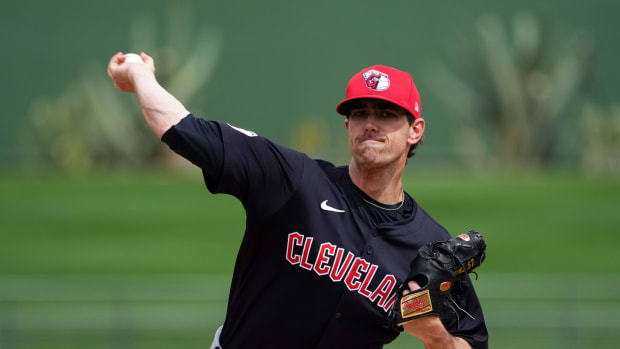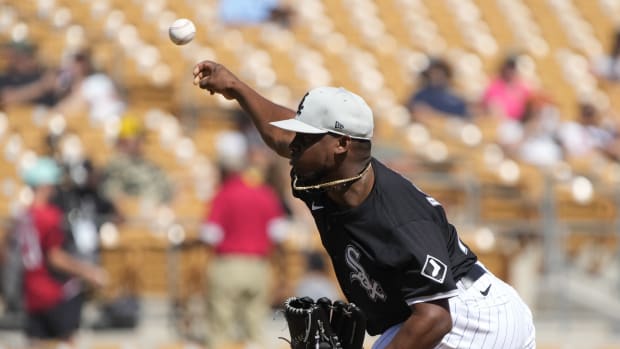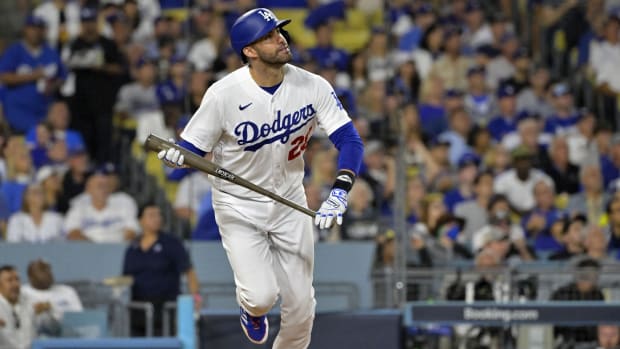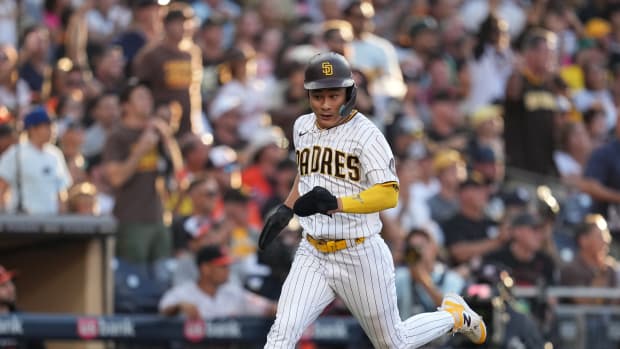MLB Owners Fail to Realize Their Own Foolishness
This is petty. It’s shortsighted. It‘s insulting. In other words, it‘s Major League Baseball owners doing what they do best: missing the point.
“Concern about our fans is at the very top of our consideration list,” said commissioner Rob Manfred on Tuesday, three months after the league locked out the players and three minutes after the league canceled Opening Day. Perhaps he misread the list: To his right, watching through the gates of Roger Dean Stadium in Jupiter, Fla., stood a fan holding a sign that read WE WANT BASEBALL.
He’s not going to get it any time soon, because the owners don’t care whether he does. There is a legal definition of the term “good faith,” and by all accounts the owners have gone out of their way to stay within it. But morally, they left that idea behind on Dec. 2, when they unilaterally ended 27 years of labor peace by locking out the players. Manfred insisted that he and his 30 bosses had done so “out of a desire to drive the process forward to an agreement now.” Then they waited 43 days to make a proposal to the union.
This is not a new strategy: Players pushed for as many as 114 games in the pandemic-shortened 2020 season. The owners offered to pay them for half that. Everyone knew that battle was a proxy war for the next collective-bargaining agreement; instead of trying to maintain a relationship, owners stuck out their tongues. They also refused to pay the minor leaguers.
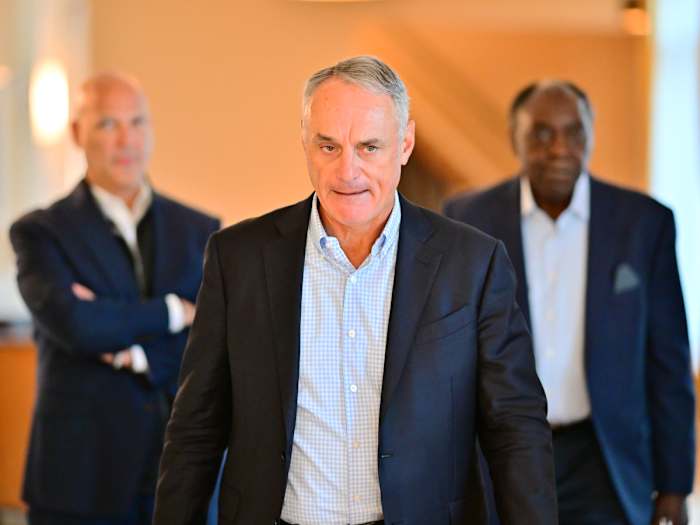
MLB commissioner Rob Manfred walks to a press conference during an MLB owner's meeting on Feb. 10, 2022.
Julio Aguilar/Getty Images
Baseball is a treasure for its fans. It is a job for its players. And it is a bargaining chip for the out-of-touch billionaires who run it.
These people do not have to explain themselves to you, and they won’t. Sports Illustrated reached out to all 30 teams to request an interview with a member of the ownership group. Thirteen declined. The rest did not bother to reply.
The worst part is how little the players are demanding. They want to raise the minimum salary from $575,000 in 2021 to $725,000 in ’22 and as high as $765,000 in ’25. (Just keeping pace with inflation would put the ’22 minimum at $650,000.) They are willing to keep the competitive-balance tax, which functions as a salary cap without a salary floor and which has expressly included a sunset clause in each CBA because it was not designed to be permanent, if they can raise the threshold at which penalties kick in from $210 million in ’21 to $238 million in ’22, up to $263M in ’25. (Since the CBT penalties went up in the last CBA, no team has blown past the threshold in three straight seasons.) They want to create a bonus pool of $85 million, up to $105 million, to pay young players. (The league is offering $30 million per year; over the life of the deal, the difference would amount to some $11 million per team.)
The players had a chance to reimagine the game’s economic structure. They probably should have! Instead they asked for a cost-of-living increase. The owners wouldn’t even give them that.
So now no one gets to watch baseball, and no one makes money from baseball. Players’ careers average just shy of four years; most owners will be doing this for decades, and then their favorite son will do it for decades more. But they behave as if their consciousness only stretches 30 seconds in either direction. They want to win. They have forgotten that when they hold the sport hostage, everyone loses.
At first, players take the greater hit because they lose 100% of what they would have made, whereas owners still have other sources of income. But within a few weeks, that changes. TV money stops coming.
“Eventually they go back to normal, but the owners have a diminished revenue stream,” said Roger Noll, a Stanford economist who has consulted for the MLBPA and on the team side. “And when it all settles out and we're two years into the future, it's always been the case in the past that the owners paid roughly twice as much” as players for a work stoppage.
So why are they doing this? “The answer,” he said, “Is every cohort of owners, historically, has had to learn the lesson for themselves that the Major League Baseball Players Association is an extremely strong and unified union, despite the differences in interests among the players, and they have to learn on their own that you can't break it. That's what happened in ’94–’95. That's what happened back in the ’80s. That's what happened back in the ’70s. It‘s just that we‘ve now had enough turnover of teams, so we have a new crop of owners that basically want to play a game of chicken, and they're gonna lose.”
We all already have.
More MLB Coverage:
• This Is The Path MLB Chose
• Derek Jeter Is a Player Again
• Rob Manfred’s Argument About Owning an MLB Team Is False
• Baseball’s Greatest Threat Isn’t the Lockout
• Andrew Miller Explains Key Lockout Issues for MLBPA






























